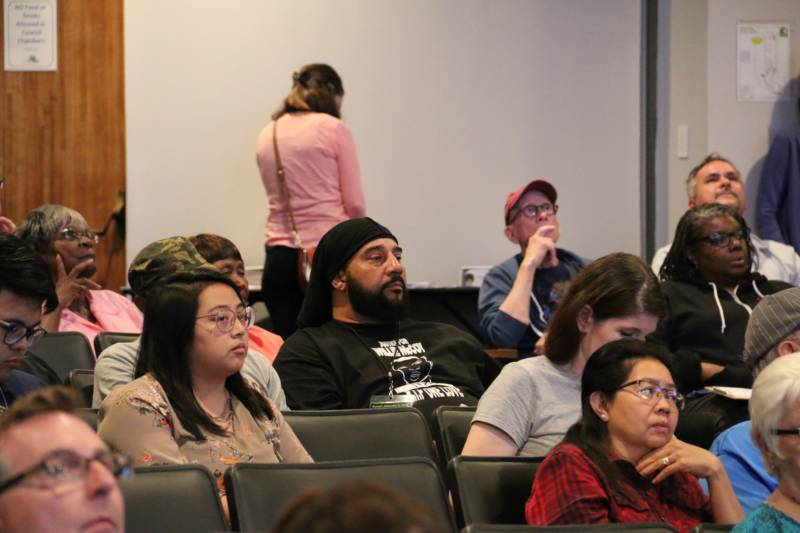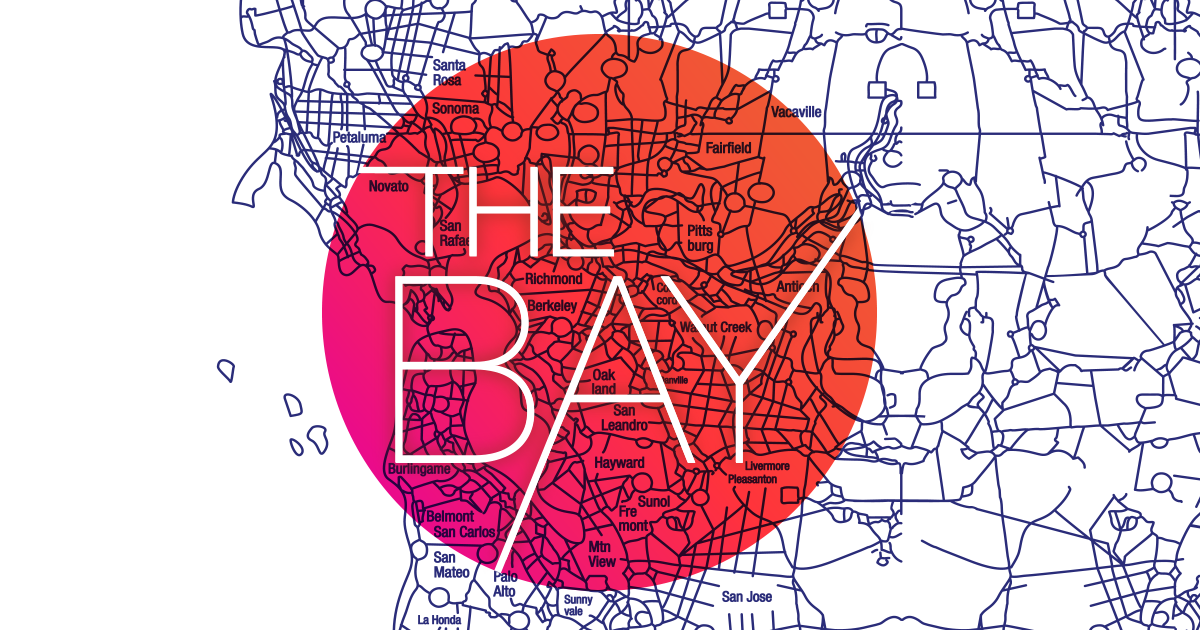Police violence can have a rippling effect in a community. Not only does it touch the families of people shot and killed by police, but also the people who live in the communities where those shootings occur.
'There's a Lot of Mistrust and Fear on Both Sides.' Vallejo Residents React to Police Violence

At least one study shows the ripples extend even further. A report published in a leading British medical journal found police shootings on unarmed black men in America have spillover effects on the psychological and emotional well-being of black people living in those states.
In Vallejo, where three recent police shootings have caused an uproar at City Hall, police violence is impacting how residents view the place they call home — and what they’d like to see happen in their community moving forward.
Our reporting on deadly police shootings has struck a nerve with our audience, especially those who live in Vallejo. Instead of city landmarks, some see spots where police violence occurred. Residents have written us to say they are frustrated but hopeful that police reform and social justice will happen.
The following responses have been lightly edited for length and clarity.
Erika Crawford is a Vallejo native who now lives in Hayward.
“My mother worked for the courts, and then my stepfather was a retired police officer — he was with the city of Vallejo for 17 years. So I heard a lot about that side of it, just kind of from day to day, him working on the streets and from my mom as cases would come through the courthouse. I grew up with that perspective.
“But much more now that just these incidents of police shootings have been coming out, and specifically with the series kind of hearing how things have unfolded in Vallejo, it’s kinda shifting. Because I’m black, I definitely understand the struggles and the bias on that end. But at the same time I understand the flip side, too, as far as law enforcement and how the criminal justice system works. It’s hard because I feel like I understand both sides; I know where both sides are coming from and it’s very frustrating, and there’s a lot of mistrust and fear on both sides, so I identify with both sides. It’s hard sifting through that, and really understand what’s happening in these situations. Who’s at fault? What did somebody do wrong here? Or what did somebody do wrong there? It’s kind of hard to pick that apart when I feel like, now especially, I know where both sides are coming from, and I know what’s contributing to it. It’s tough.”
Brien Farrell is a Vallejo resident and former attorney who worked with the City of Santa Rosa.
“I’m a hot-tempered Irish guy. I have to walk out of the council chambers sometimes when I hear no one listening to the family members [of people shot by police]. I just can’t take it. And I’m a guy whose job was to make sure that business could be conducted at City Council meetings. These disruptions do unsettle everybody — they make everyone feel sick. And that’s not always the single purpose of the disturbances, but it’s one of the purposes, because nobody is listening. What can they do to get someone to listen?
“These events are not risk management or city budget events, they are catastrophic, tragic losses for families. And I know, from my work, how much harm results — [harm] to police officers who are involved in officer-involved shootings, for example, or use-of-force incidents. They are traumatized, too. Not in the same way, but there is serious trauma for officers also. We don’t want these events to occur, we want officers and community members to be safe. And there are those who will say ‘I’m with my officers come hell or high water.’ And the simple response is that: with great responsibility comes the necessity of full evaluation to understand whether we can find ways to reduce the risk of injury in the future.”
Sharon McGriff-Payne is a historian who’s lived in Vallejo since the early 1950s.
“What has concerned me is that it seems like a lot of really hurt feelings here in the community. I was at one of the City Council meetings a few weeks ago for another reason, but I was there and a lot of the families who have been involved in talking about this whole police issue were there, [too]. And there was a lot of just … anger. It’s the kind of anger that you can understand. My impression of this whole thing is that people are voicing their anger at these City Council meetings because I think they feel like they’re not being heard. And one of the things I always notice is that people, when they’re most angry, and when they show their anger, is when they don’t feel like they’re being heard.
“Of course, not to take away from Vallejo police — we of course need police. But we need our city, city leaders especially, to act like they’re concerned. And right now, even if they are concerned, I’m not sure they’re showing it in the way they really should, and I don’t know what causes that.
“I just find that this is a problem that can be solved. But it has to be solved with people being honest and looking at it as a city issue — that we’re all concerned. That’s what I want people to understand: that it’s not them against us, or that kind of mentality. This is a city I think we all love. We grew up here, we’re all concerned. It’s a solvable issue and part of how it’s solved is to start listening.”

